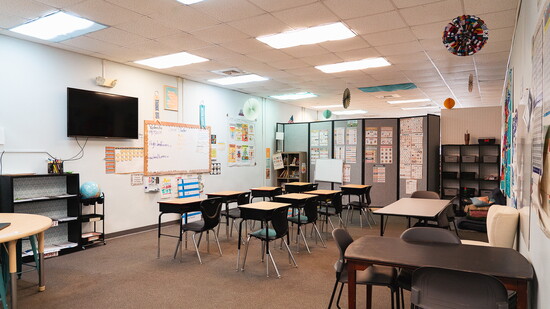If you ask parents like Evie Ramos and Franz Menay what makes Advanced Sacred Hope Academy (ASHA) different, their answer is simple: It’s love. When the small school for neurodiverse children opened in 2019, Evie and Franz’s son Dom was one of its first students. He’s still there, and he’s thriving.
Evie, who works at ASHA, inspired founder Julie Webb to open the school. They met while working at another clinic and shared many conversations about the struggles that Dom, who has autism and some self-injuring behaviors, was having in other educational settings.
“Miss Evie was having a really hard time in the system,” says Julie, a licensed mental health therapist and behavioral analyst. “She needed a school for her son that understands his diagnosis and a place where he can learn and not be sent home because of all these behaviors.”
Both women agree that ASHA would never have happened without their paths intertwining. While Julie is the founder—the one who has taken it from two classrooms in a downtown church to what it is today—Evie has been the driving force. She never gave up.
“I wanted to get Dom out of public school,” Evie says. “That motivated Julie. ‘We have so many kids,’ I told her. ‘You should open a school. When there’s one kid, more will come.’”
In addition to being a visionary and a businesswoman, Julie is a leader and a kind employer, Evie says. She’s always there for her staff, supporting them personally and professionally. It’s a staff that will nearly double with their upcoming expansion into a new facility.
“We want the staff to work with the children with love and patience,” Julie says. “It’s the mission. We help our students transition from where they are to the next level. But we’re not pushing at a pace that they can’t keep up with if they’re not developmentally there yet. We’re holding their hands and guiding them through those steps.”
Dom is one of just 67 students at ASHA, located in a former church in a strip mall in the city of Mary Esther. The academy is poised to expand into a new building at 106 Racetrack Road early in 2026. Renovations are underway for the new school, which will hold up to 120 students. Decisions are still being made about whether to keep the current location to further expand ASHA.
They already have a long waiting list—one that keeps growing as word of the school reaches those in the neurodiverse community. While many of ASHA’s students have autism, it also includes children who are there because they need the time and support to develop socially, emotionally and physically at their own pace.
Julie’s son, Attila, had a speech delay as a very young child that caused him to become frustrated trying to read. He spent two years at ASHA learning to read and to love it before she transitioned him to a public school, where he is thriving.
“What he needed was accepting where he’s at, which allowed him to learn,” says Julie, who understands personally the journey that ASHA families are on.
Dom, now 15, is part of an ASHA classroom with other students his age. He is writing, doing multiplication, communicating with a device and using a calculator to solve complex math problems.
He is where he belongs, thanks to the passionate advocacy of the staff, led by Julie.
“Before ASHA, I had to fight for everything,” Evie says. “You shouldn’t have to fight for your kids.”
Along with many community supporters, ASHA provides families with a village to support their learners. Their time at ASHA means everything to them.
